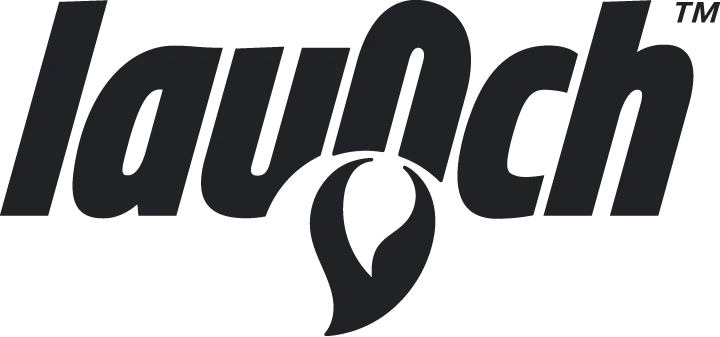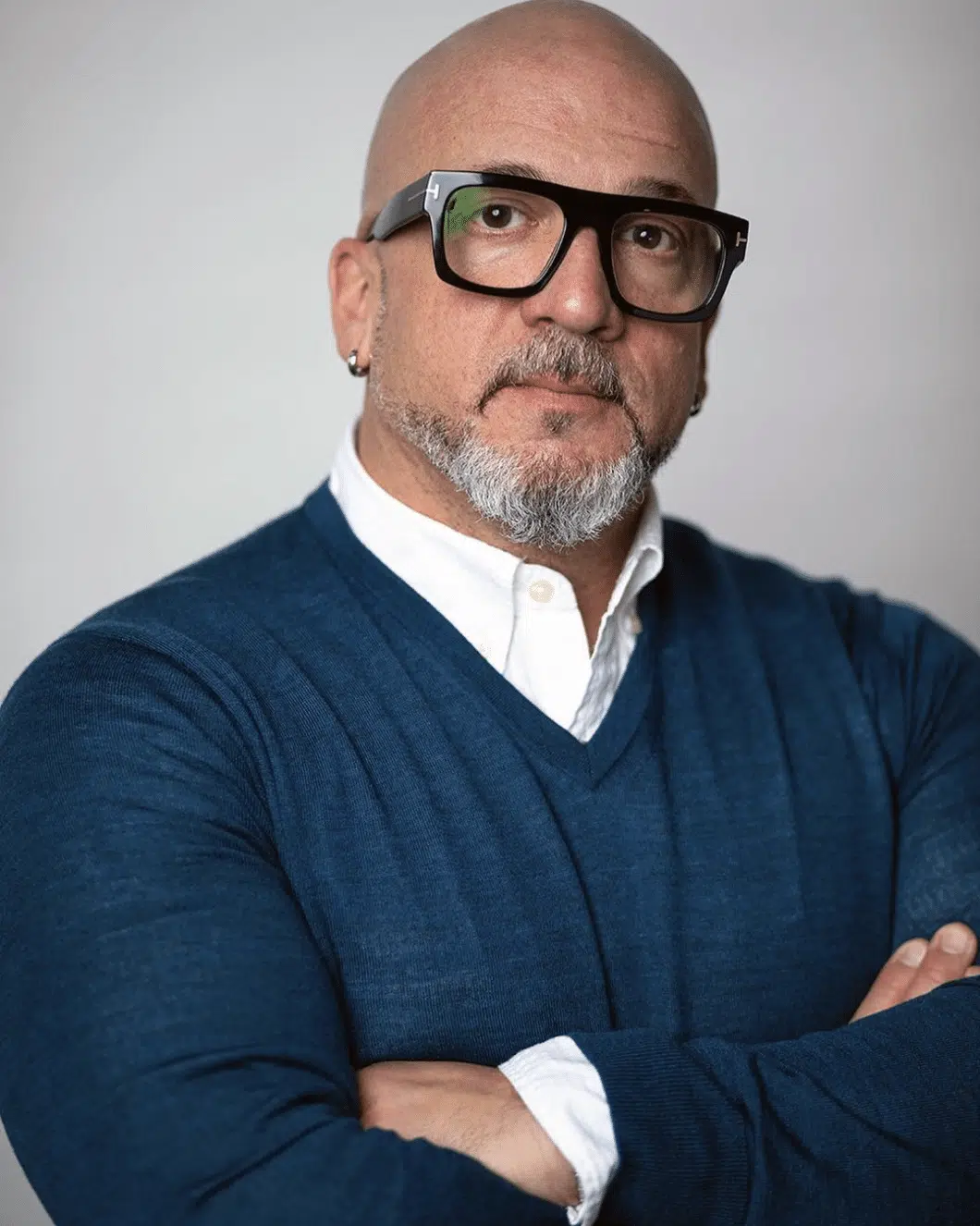No matter what you look like, where you come from, or how you identify — your voice matters. To uplift voices on our team and celebrate Hispanic Heritage Month, we interviewed our co-founder and CXO Javier Santana. Javier is a Latino business owner who takes pride in his culture and champions diversity and inclusion. We want to spotlight Launch’s leader in a month that celebrates the culture he loves and hear how it has shaped the way he works and leads.
Q: First, tell us where you’re from and a little bit about your culture.
Javier: I was born in Santurce, Puerto Rico, which is just inside of San Juan, and I lived there for a very short time of my early life.
When I was about six, we migrated to the States. Then, I spent most of my youth living between Miami and Puerto Rico, bouncing back and forth until middle school or so. Eventually, I ended up in the states in my late teens.
Puerto Rican culture is a mix of Taino Indians or native Indians, the Spaniards, and the Africans. We pay homage to our African roots in music and dance, like the Bomba dance. We are rooted in tradition where we celebrate art, music, and life with Caribbean style carnavales.
So there’s a lot of culture there, and when you see the people of Puerto Rico, you see a spectrum of different looks and colors. I’ve actually been told before, “You don’t look Puerto Rican,” and my response is, “What does a Puerto Rican look like?”
We love food. We eat plantains, pretty much with everything. We practically fry everything that we eat, and it’s delicious. And, of course, being one of the capitals of rum in the Caribbean, we drink a lot of rum.
Q: What is the work culture like in Puerto Rico? How does work fit into people’s mindset?
Work culture is a very proud and dedicated culture. There’s still a lot of people that have worked for the same company for over 10 years, so a lot of loyalty. However, travel and tourism drives the majority of the workforce on the island.
There’s not too many technology based gigs out there, and if they are, they’re usually attached to a U.S or Foreign company. For example, AT&T and Honeywell have presence there and they’re some of the biggest tech job providers.
Q: With a work culture driven by tourism and a small tech presence, we assume you didn’t see many people who look like or represent you in your current role. How did that shape your career path as you went through the ranks in the creative and technology fields? Who influenced you?
It’s interesting: when I was younger and in school, I was an illustrator, so I used to draw and paint on everything. One of my first entrepreneurial gigs was doing band logos on denim for other kids in school. They would hire me to paint the Bon Jovi logo or the Striper logo on a jacket and stuff like that. And I had friends that were creative but not friends that were artistic to that point. So, I did not have a lot of influence from my peers per se, but I did have a lot of influence from my family.
I went to live with my aunt & uncle for a while in Puerto Rico. My aunt and uncle were well-traveled and had a very good fashion sense — they were in the fashion business and had a couple of boutiques. They were very, very big appreciators of art, so there were all kinds of very eclectic art throughout the house. I think that really opened my eyes to a lot of different possibilities from an artistic point of view.
From a creative point of view, I was also exposed to some different music. My pop was a musician, and he played a very specific type of music — contemporary Spanish guitar. Still, he exposed me to jazz, American contemporary, and R&B. And then my aunt and uncle were appreciators of music. They listened to a lot of classical. At first, I was like, “Oh, God. Classical,” but I learned to appreciate it. Really, just understanding the compositions and how to make those things come together was really interesting to me, so I’m a big appreciator of music.
Q: How have your influences and Puerto Rican culture translated to your leadership style?
The people are very proper, meaning etiquette and how people behave with each other. Everybody is very friendly and kind. People open the doors for you, you say, “Excuse me,” and they respond, “Of course, please.” Everybody’s just very proper in their behavior. I think that translates a lot to the way that we do business and the way that I think about business.
The formality of a good handshake, being a good listener, not taking advantage of people’s time, and just not taking that for granted is very important in our culture. We look at that from a business standpoint. I think that translates perfectly, and most of the people I’ve met who are Latinos in business are like that. They’re just very formal in the way that they approach business.
Q: You’re headstrong and proud of your culture. What does Puerto Rican and Latino pride mean to you? How does this pride show up in your work?
It’s a bond, it’s unity. You cheer each other on, and there’s a lot of pride in others’ accomplishments. You could be 10% Puerto Rican, you’re still Puerto Rican. I think that’s a specific nature of our people and other Latin and Caribbean cultures. You raise [your people] up, and you cheer them on, and I think that translates to business in the same exact way.
When I look at Launch, this is my team. These are my people, and I want to raise them up, give them a platform to succeed, and then have a team to celebrate everybody. So yeah, it translates very, very well, and I think it’s a lesson that has definitely helped me in business.
Q: What advice would you give to other Hispanic/Latino professionals moving up in their creative/technology careers?
We may be a minority, but we have an advantage. Most of us are bilingual, that to me, is a business advantage. It gives you the opportunity to be in the middle, where I always looked at it as something that was a bit of a burden when I was younger. Now, I look at it as an advantage. I’m part in the Latino community, part in the English-speaking community, and that glue that binds both sides.
So my advice is always to be authentic to that, be proud of it, but also be open to make sure that you’re constantly uniting people from both sides. That is an advantage, by the way, that has helped me in my career a lot.
Q: What advice do you have for leaders looking to champion diversity and inclusion in their workplace?
Celebrate people of all walks of life. You have to look at people for their character and what they bring to the table, and give opportunities equally across the board. Really think about the cultural makeup of your company or your teams and what voices are at the table. Specifically, in what we do [as an agency], we’re an extension of marketing. We’re thinking about how to communicate with an audience. That audience is diverse, so that means your teams that are communicating have to be diverse.
My advice would be to make sure that you have the right people at the table when you’re having these conversations. Make sure that you’re listening to them and celebrate them too. I’m all about celebrating people. I was very fortunate during my many different positions that I always had champions who believed in me and pushed me. They celebrated me in ways that would get others’ attention, which would help me rise in the ranks, but also give me other opportunities I would not have had.
Javier has a career that spans 20+ years in designing and building digital experiences. He lends his voice to many podcasts and other interviews. To hear more from Javier follow him on LinkedIn.




